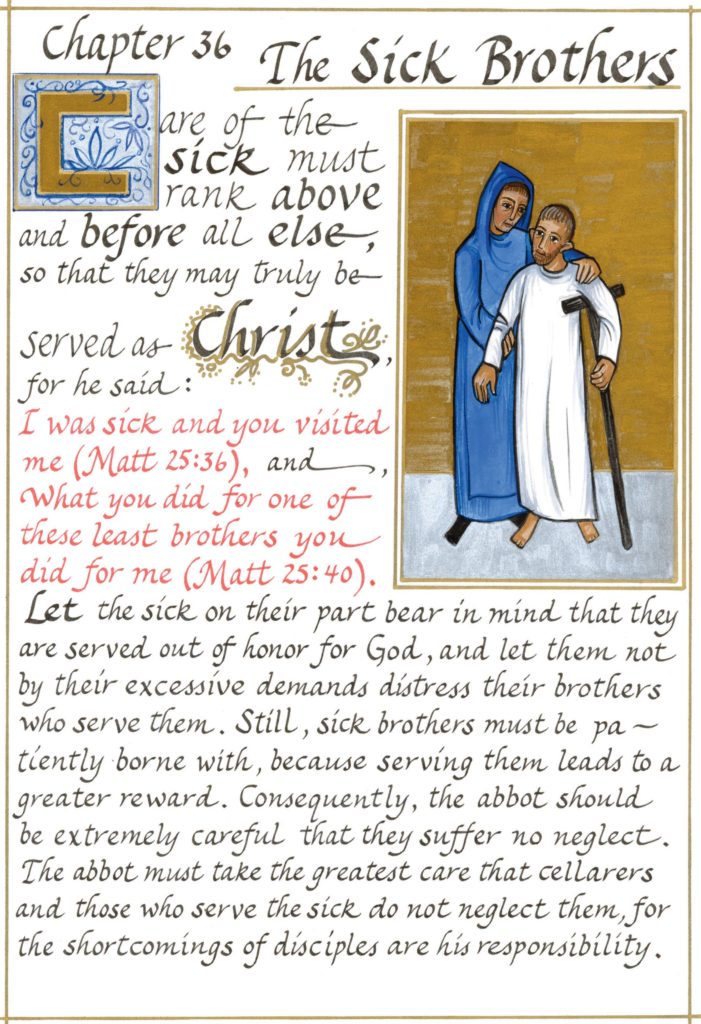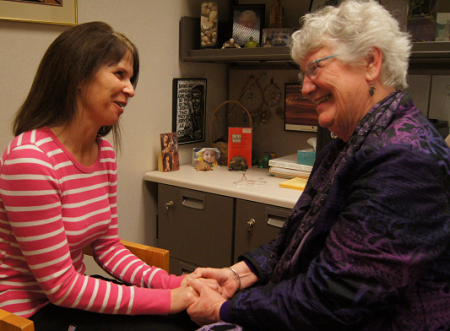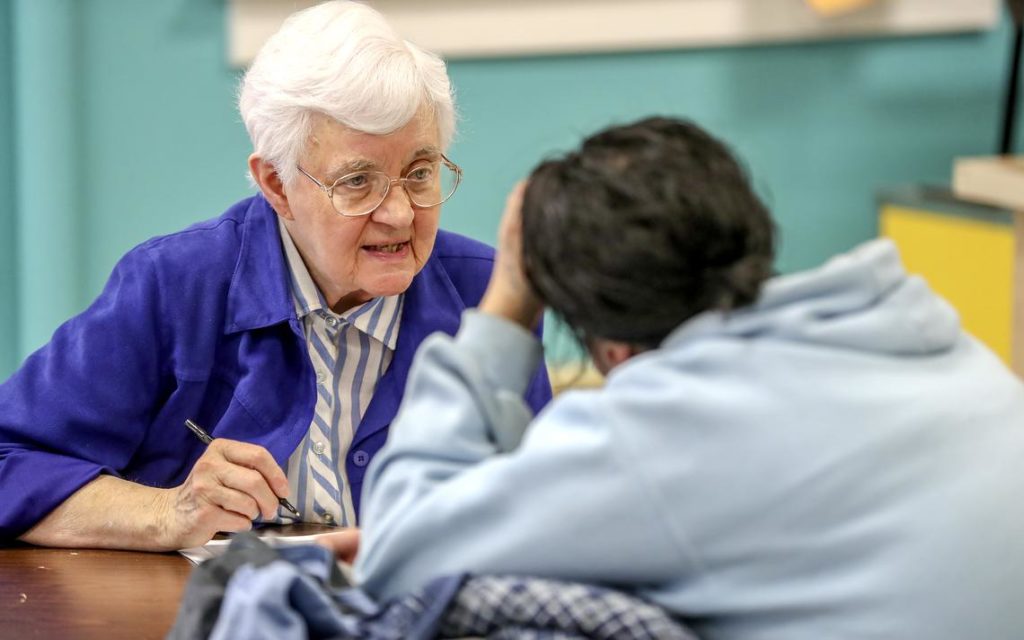The Rule of St. Benedict is the foundation of our ministries with the aged, the poor, the sick, and others in need. In this context, pastoral care provides emotional and spiritual support for those going through illness or loss.
Pastoral care is a natural outgrowth of St. Benedict’s humane approach to caring for the needs of the most vulnerable among us. It is a living example of Christ in our midst.
Benedictine chaplains minister to the sick and dying and to their families and caregivers. Body and soul, past and present, dreams and feelings, family and friends – all are part of each person’s unique story of God’s creative love. Pastoral care is a vital part of the healing process because the whole person is in dis-ease.
In his book The Wounded Healer, Henri Nouwen addresses the paradox of being called to be a healing instrument for others while being in need of healing oneself. It is the paradox of every human being who takes Jesus’ command to love the other seriously. We cannot help others in their wounded-ness until we look deep within at our own scars and love who we are because of those wounds.
Chaplains are trained in listening skills, crisis intervention, and assessment of spiritual needs. They are not proselytizers of any religion or belief system. Rather, as spiritual caregivers, they listen and help people to understand and put into words their own meaning, beliefs, and resources during times of crisis.
They listen to the heart of the person, full of fear, anxiety, anger, shame, or guilt in the face of crisis or death. They support patients, families, and staff through the anguishing struggle of answering the question: Is the treatment participating in the healing process or is it prolonging the dying process? Chaplains help patients and families to make informed ethical decisions and to move to a place of surrender and peace once the life-or-death decision is made.
In the Oncology unit of St. Mary’s Medical Center in Duluth, Sister Sue Fortier cares for the patients’ spiritual needs. “In our complex and technological health care systems, we must never lose sight of relationship, for it is there that life has purpose and meaning. It is there we are healed. It is a great privilege to witness the Divine breaking into the human story with possibilities of love, freedom, reconciliation, forgiveness, and deep gratitude and to extend God’s compassion and healing presence to another in the midst of suffering.”



